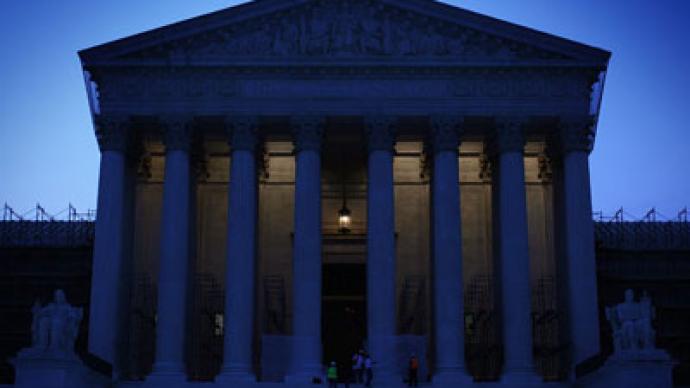Supreme Court declares mandatory life sentences for children unconstitutional

Mandatory life imprisonment for juveniles without the possibility of parole is unconstitutional, the US Supreme Court ruled Monday in a close 5-4 decision.
America’s highest court weighed in on the topic of youth incarceration early Monday and determined that it is in violation of the US Constitution to force juvenile offenders to spend the remainder of their lives behind bars without the court first taking into consideration the age of the defendant. Currently around 28 of the 50 states in the US mandate life terms for murderers, including those that are under the age of 18. Monday’s ruling does not completely disqualify life sentences without the possibility of parole for juvenile convicts, but does necessitate that courts from now on consider the defendant’s age before dishing out such a punishment. On behalf of the five justices that ruled in the majority, Justice Elena Kagan writes for the court that mandating life sentences with no chance of parole for children violated the US Constitution’s Eighth Amendment, the provision that provides protection against cruel and unusual punishment.“State law mandated that each juvenile die in prison even if a judge or jury would have thought that his youth and its attendant characteristics, along with the nature of his crime, made a lesser sentence (for example, life with the possibility of parole) more appropriate,” Kagan writes on behalf of the majority.In the ruling, Justice Kagan adds that “a judge or jury must have the opportunity to consider mitigating circumstances before imposing the harshest possible penalty for juveniles.”“Our decisions rested not only on common sense — on what ‘any parent knows’ — but on science and social science as well,” she writes, adding, “the mandatory penalty schemes at issue here prevent the sentencer from taking account of these central considerations.”The court offered their ruling while weighing in on two separate cases of boys who were sentenced to life in prison without parole for participating in acts of murder while only 14 years old. Evan Miller was sentenced to life in prison with no parole for setting fire to the home of a 52-year-old man after the two had drank and did drugs together in Alabama; Kuntrell Jackson received the same sentence for being present at the scene of a murder when his friends shot a shop clerk to death in Arkansas in 1999.Bryan Stevenson, executive director of the Equal Justice Initiative, who represented Jackson and Miller, calls Monday’s decision “an important win for children.”“The court took a significant step forward by recognizing the fundamental unfairness of mandatory death-in-prison sentences that don’t allow sentencers to consider the unique status of children and their potential for change,” says Stevenson. “The court has recognized that children need additional attention and protection in the criminal justice system.”Roughly 2,500 inmates in the US prison system are serving life terms with no possibility of parole for murders committed while under the age of 18, court documents reveal. The Associated Press reports that more than 2,000 of those sentences were imposed because they were mandated by a legislature.














